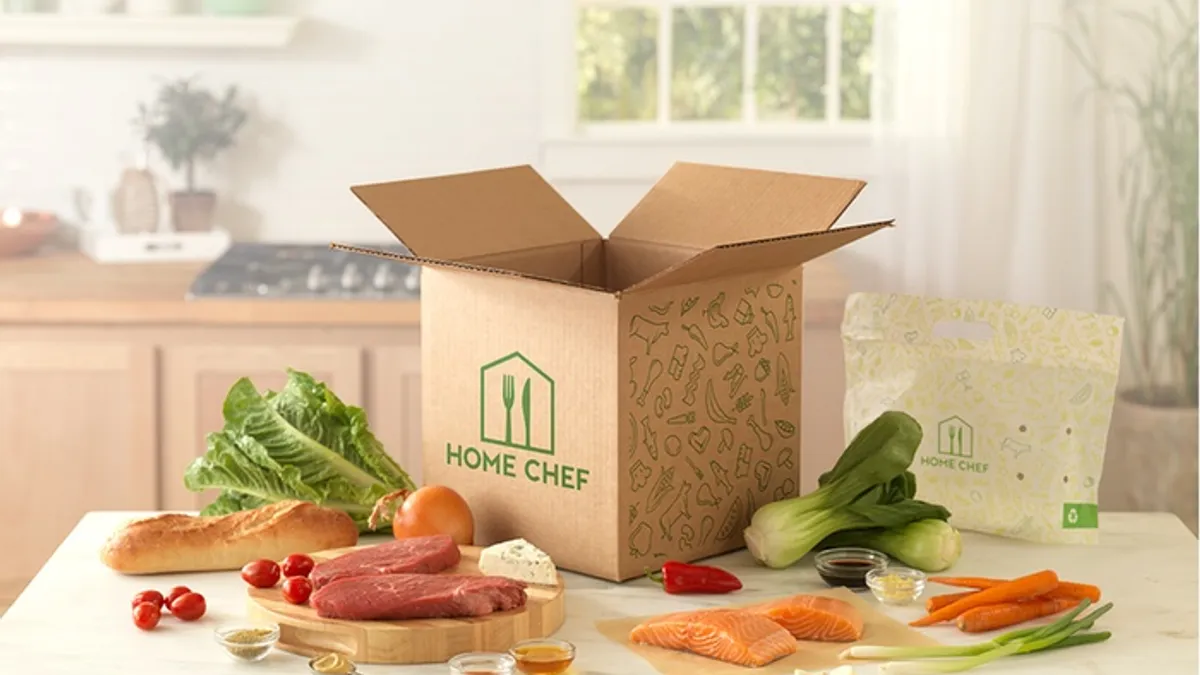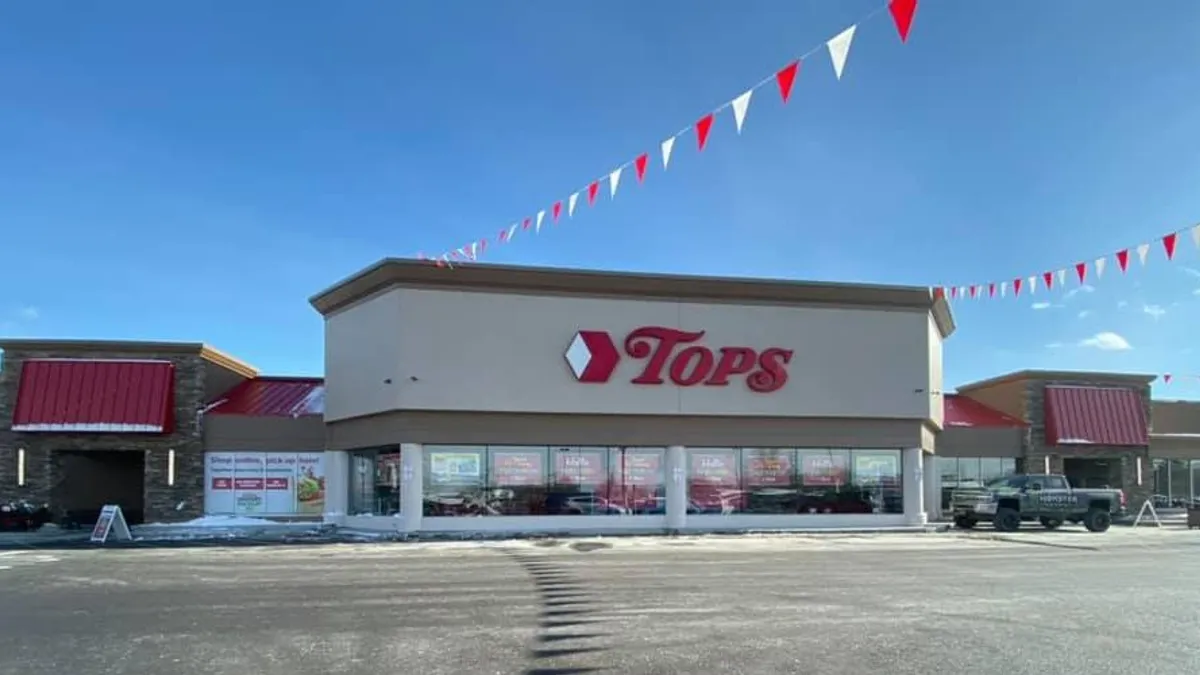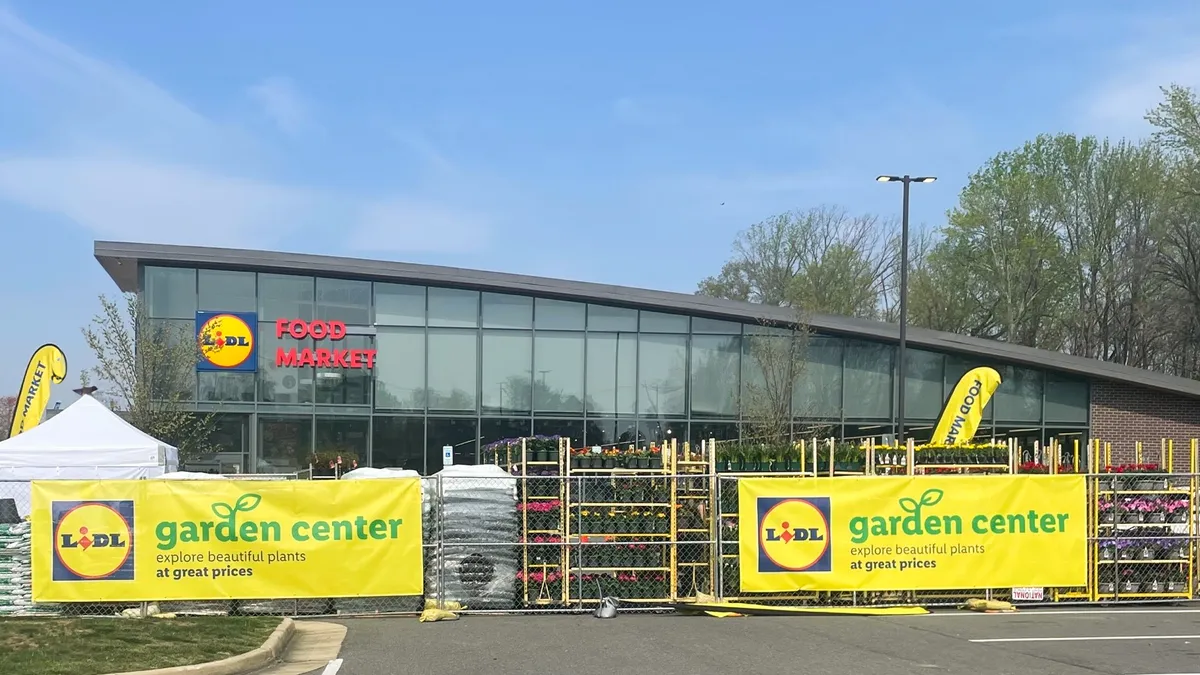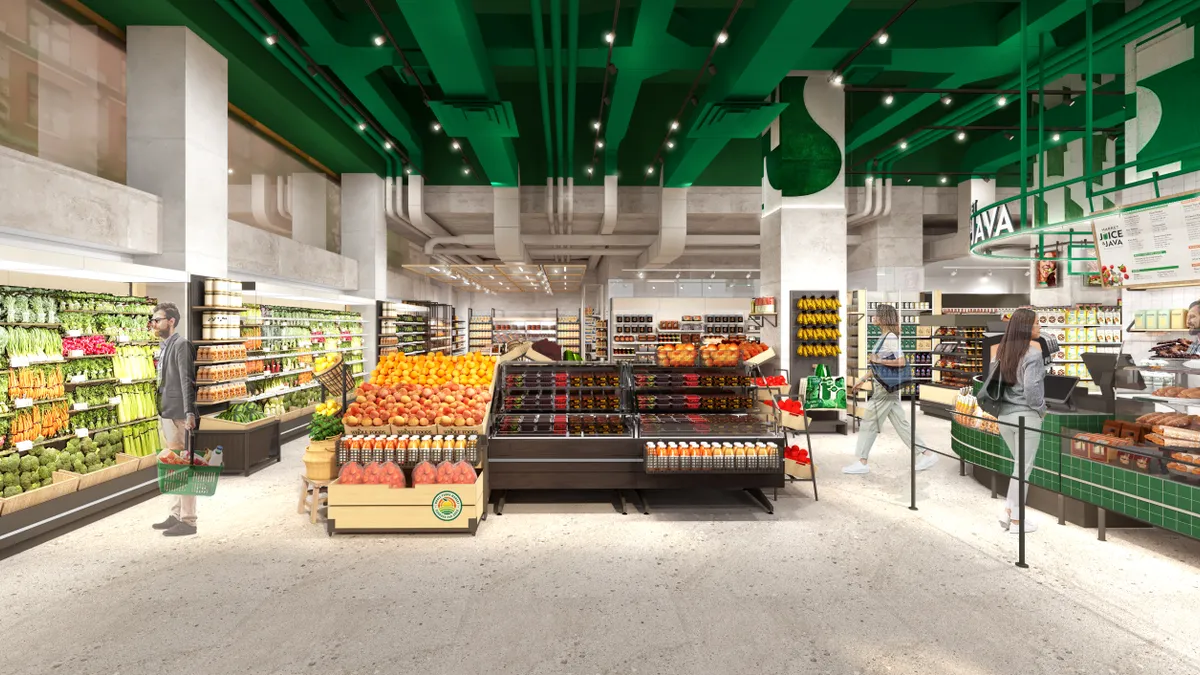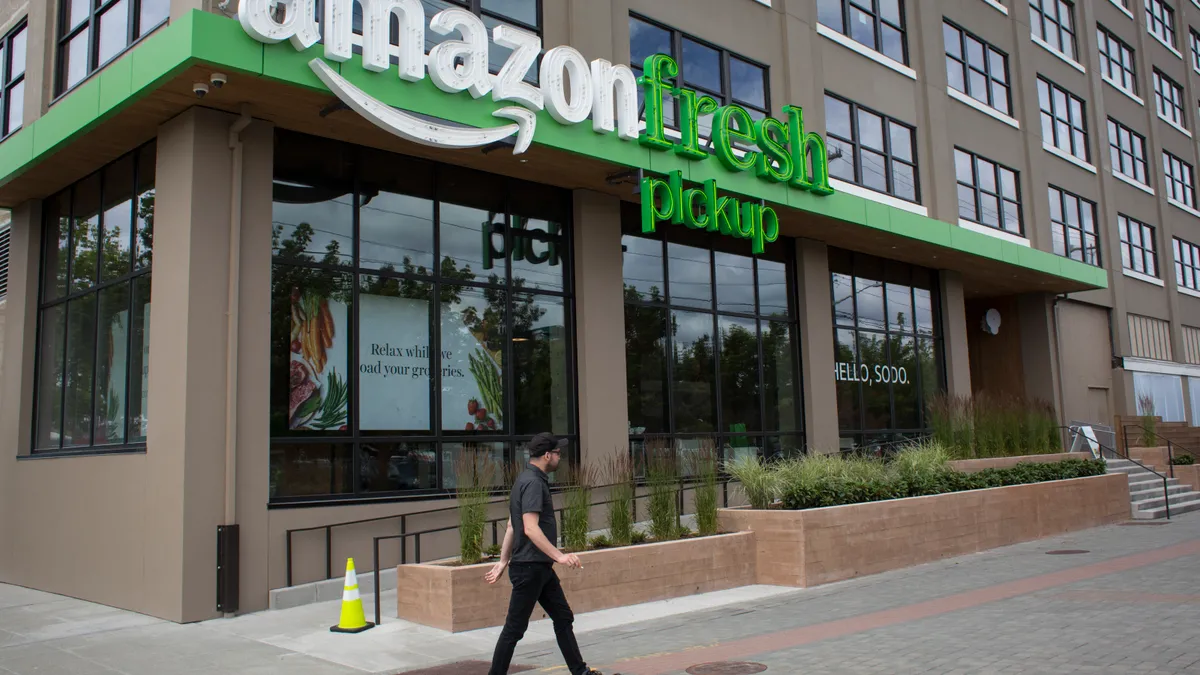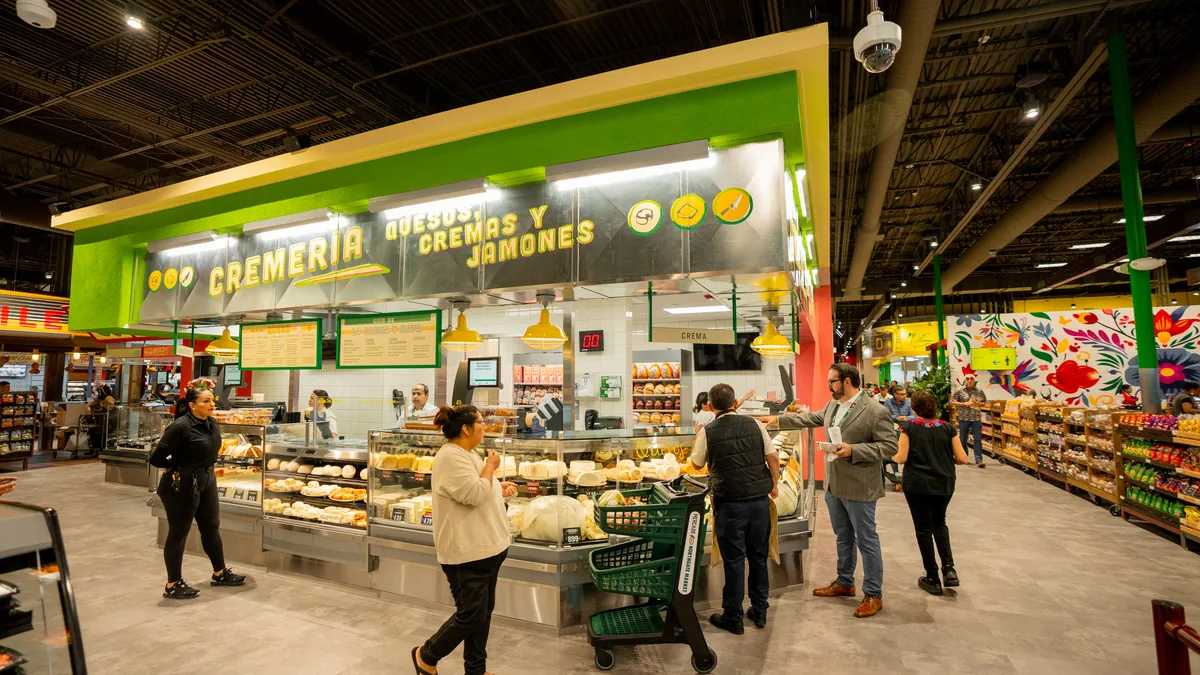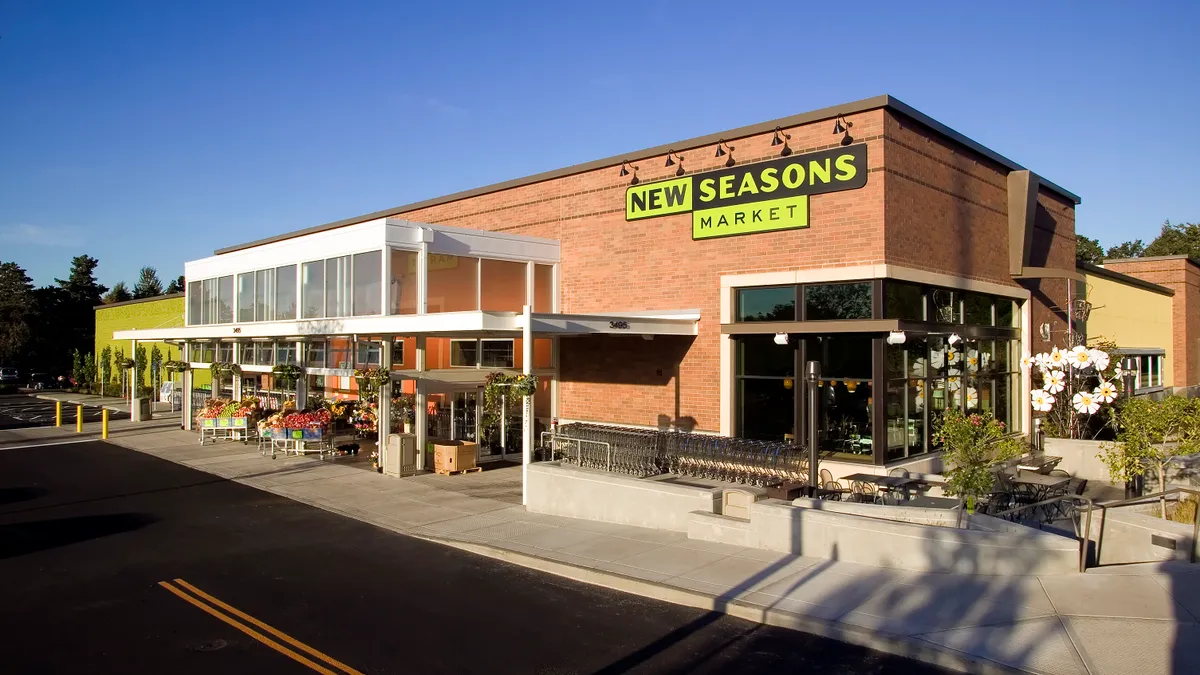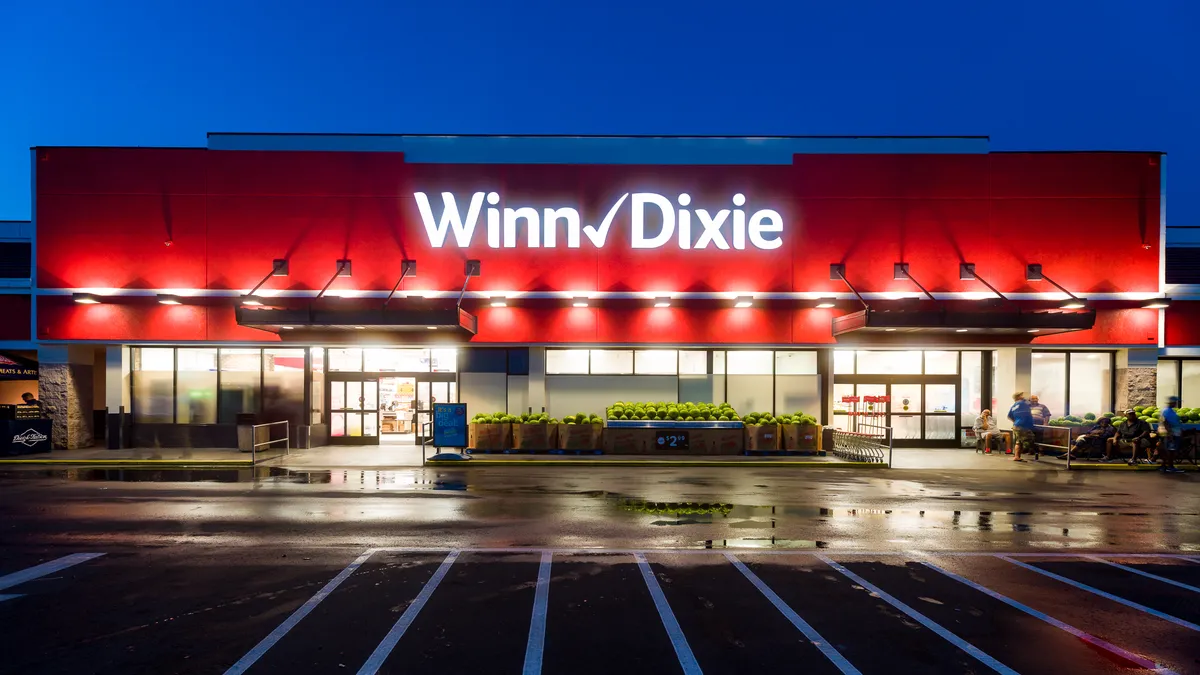The ink has only just dried on Kroger's deal to acquire Home Chef, and the grocer is wasting no time getting the company’s meal kits onto store shelves. According to Home Chef chief revenue officer Rich DeNardis, the retailer aims to offer the kits in select stores by the end of this summer.
Kroger, which spent $200 million to acquire Home Chef, with an additional $500 million in incentives, hopes this will be the beginning of a profitable relationship. Meal kits have rocketed to popularity recently, but many customers are hesitant to commit to a subscription plan, making grocery stores an enticing destination. According to Nielsen, in-store meal kits generated $154.6 million last year, and are expected to grow significantly this year as big names like HelloFresh and Blue Apron migrate onto shelves.
Home Chef’s newly profitable online business, which focuses on what DeNardis calls “approachable” meals, offers yet another revenue opportunity for Kroger outside margin-starved grocery. In recent months, the retailer has turned to restaurants, apparel, online advertising and leasing its store technology to generate sales.
“Customers want convenience, simplicity and personalized food experience,” Kroger CEO Rodney McMullen said during a recent earnings call. “Our planned merger with Home Chef will accelerate our ability to deliver exactly this.”
In an interview with Food Dive, DeNardis said Home Chef and Kroger will focus on providing a frequently rotating selection of meal kits in stores. Home Chef features new offerings on its site each week, and DeNardis said the company plans to offer a subset of those meal kits on shelves, creating a consistent omnichannel presence that can drive store customers to the online business, and vice versa.
“We get a lot of customers online that know what they want ahead of time and can plan for it,” DeNardis said. “Now we have an opportunity to capture additional meal occasions — folks that are wandering through stores wondering what’s for dinner tonight or tomorrow.”
In addition, DeNardis said both companies see significant sales coming through Kroger’s online platforms, including ClickList store pickup, which is now available at more than a thousand stores, and home delivery through providers like Instacart in select markets. Kroger’s online sales rose 66% during this year’s first financial quarter.
Meanwhile, Kroger’s other big investment this most recent quarter — an exclusive deal with Ocado to build automated fulfillment warehouses in key markets across the U.S. — could end up generating even more meal kit sales for Home Chef.
“This paired with the Ocado partnership really sets the stage for a true showdown in the online grocery wars, while continuing to reinforce the importance of the physical store,” Diana Sheehan, vice president of retail and shopper insights with Kantar Retail, recently told Food Dive.
Beyond meal kits, Home Chef will also take over Kroger’s meal solutions portfolio — a sign of just how much emphasis Kroger is placing on innovation in the growing category. It’s a considerable task, but one DeNardis says Home Chef is up for considering its data mining and R&D capabilities. The Chicago-based company employs a culinary team, including several chefs, to develop new recipes. It also has five years worth of data on its customers and on which meals and ingredients perform best, and continues to gather more. Home Chef will also take over Kroger’s Prep + Pared meal kit line, which had expanded to several hundred stores before the acquisition.
“We’ll be working closely with the Kroger team that’s managing Prep + Pared, and also working closely with their R&D teams to think about other meal solutions,” said DeNardis.
Kroger has made a big bet on Home Chef’s capabilities and on the viability of store meal kits — too big, according to some.
“We struggle to see enough of a net benefit to justify the $700 million potential acquisition cost, when including earn-outs,” UBS analysts wrote in a recent note to clients.
Still, companies and industry analysts by and large are bullish on meal kits’ prospects on store shelves, noting the convenience factor and the built-in awareness the kits carry with them. Albertsons has begun rolling out Plated meal kits to its various banners after buying the company last fall. Blue Apron forged a deal with Costco stores and HelloFresh just signed on with Ahold Delhaize.
Rising competition will make life tough for Home Chef’s store sales, but DeNardis said the company is used to this, competing as it does in a very crowded online meal kit business, which is worth an estimated $5 billion, according to Packaged Facts.
Making money in that online space has been a challenge for meal kit makers, which spend heavily on marketing while most consumers drop their subscription within a few months. DeNardis acknowledged these difficulties but said Home Chef has become profitable through a disciplined approach that includes trimming marketing spend wherever possible. For instance, the company has invested heavily in partnerships and in its customer referral program.
Over the past two years, the meal kit company has gone from delivering just 70,000 meals per month to nearly 2.5 million meals per month. Kroger and Home Chef will hope to continue that growth and translate meal kits’ appeal to physical stores and across the retailer’s own online assets.
“It comes down to understanding the macro shopper mindset and the fact that shoppers are more interested in solutions rather than running around the store for individual groceries,” said DeNardis.



